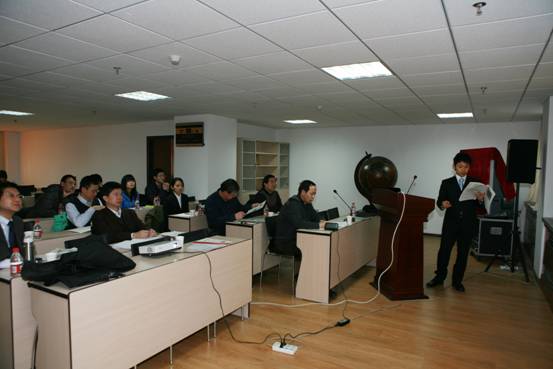The Joint Master's Degree Programme on Integrated Drylands Management Defense
Updatetime:2010-01-19From:
【Enlarge】【Reduce】
January 8, 7 students including 2 Chinese students and 5 Japanese students associated educated by Cold and Arid Regions Environmental and Engineering Research Institute (CAREERI),the United Nations University (UNU), Japanese Tottori University (TU),Institut des Régions Arides (IRA) etc .have passed the master degree defense successfully. Obtain the master's degree.

According the reports, The Joint Master’s Degree (MSc) Programme on Integrated Drylands Management brings together different expertise and scientific resources of the partner institutes to build advanced human capital, generate and adapt global knowledge for local solutions in drylands. The programme provides young professionals and scientists an international perspective on integrated resources management approaches in drylands and allows them to gain practical experience in different dryland countries.
The MSc Programme will offer two components: 1) a short intensive course and 2) field research leading to the development of a Master’s thesis. Throughout the programme, a strong emphasis will be placed on multidisciplinary approaches.
The four weeks course work will focus on the international dimension of dryland management and a range of research methods. An international team of selected experts from all partners and their networks will provide a balanced mix of lectures and seminars.
The six month field and laboratory research will be conducted under the supervision of one of the programme partners. Upon completion of the MSc Programme, students will receive a Master’s Degree from their home university and UNU.
Typically, the graduates from the MSc Programme serve in government departments and agencies (e.g., those dealing with agriculture, forestry, natural resources management, and combating desertification), teaching positions in institutions of higher learning, research institutions and doctoral research programmes.

Appendix




